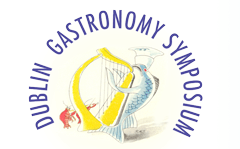Start Date
31-5-2016 4:00 PM
End Date
31-5-2016 5:30 PM
Description
In an increasingly globalised world, hospitality and culinary arts educators seek to further internationalise the curriculum in an effort to better prepare graduates to work and live in a rapidly changing and intercultural workplace. Jane Knight’s commonly accepted working definition for internationalization is ‘the intentional process of integrating an international, intercultural or global dimension into the purpose, functions and delivery of post-secondary education, in order to enhance the quality of education and research for all students and staff, and to make a meaningful contribution to society’ (Knight, 2003).
One of the main barriers to increased internationalisation in the epicurean world is that of language proficiency levels and the nature of teaching and learning engagement. Traditionally hospitality and culinary arts students have often had some difficulty accepting the relevance of modern languages despite the historic role that the language has played in gastronomic discourse down through the centuries.
This paper explores a pilot initiative carried out among students on the Wine and Beverage Studies module of a BA programme in International Hospitality and Tourism Management. Students registered on this programme choose to study a language and in year three participate in an internship period abroad. Anecdotally some students in the past have perceived the study of language as something ‘apart’ from their core area of study. While these students are not language students, the pilot had as its objective to better integrate the language component into the core practical area of wine and beverage studies. The aim was to enhance the experience and ultimately improve performance while at the same time making the language more relevant to the student’s learning.
As part of the pilot, language lecturers liaised with the programme team involved with delivering of core vocational modules. They designed lesson plans, and co-delivered parts of the module. Our language specialists were asked to leave the language laboratory behind and move into Real Work Environment (RWE) of the training bar and restaurant. This paper presents the qualitative and quantitative findings of this pilot initiative.
Language Integration into Gastronomic Education: A Revolutionary Approach?
In an increasingly globalised world, hospitality and culinary arts educators seek to further internationalise the curriculum in an effort to better prepare graduates to work and live in a rapidly changing and intercultural workplace. Jane Knight’s commonly accepted working definition for internationalization is ‘the intentional process of integrating an international, intercultural or global dimension into the purpose, functions and delivery of post-secondary education, in order to enhance the quality of education and research for all students and staff, and to make a meaningful contribution to society’ (Knight, 2003).
One of the main barriers to increased internationalisation in the epicurean world is that of language proficiency levels and the nature of teaching and learning engagement. Traditionally hospitality and culinary arts students have often had some difficulty accepting the relevance of modern languages despite the historic role that the language has played in gastronomic discourse down through the centuries.
This paper explores a pilot initiative carried out among students on the Wine and Beverage Studies module of a BA programme in International Hospitality and Tourism Management. Students registered on this programme choose to study a language and in year three participate in an internship period abroad. Anecdotally some students in the past have perceived the study of language as something ‘apart’ from their core area of study. While these students are not language students, the pilot had as its objective to better integrate the language component into the core practical area of wine and beverage studies. The aim was to enhance the experience and ultimately improve performance while at the same time making the language more relevant to the student’s learning.
As part of the pilot, language lecturers liaised with the programme team involved with delivering of core vocational modules. They designed lesson plans, and co-delivered parts of the module. Our language specialists were asked to leave the language laboratory behind and move into Real Work Environment (RWE) of the training bar and restaurant. This paper presents the qualitative and quantitative findings of this pilot initiative.

Comments
Parallel Session 3, Day 1, May 31, 2016.